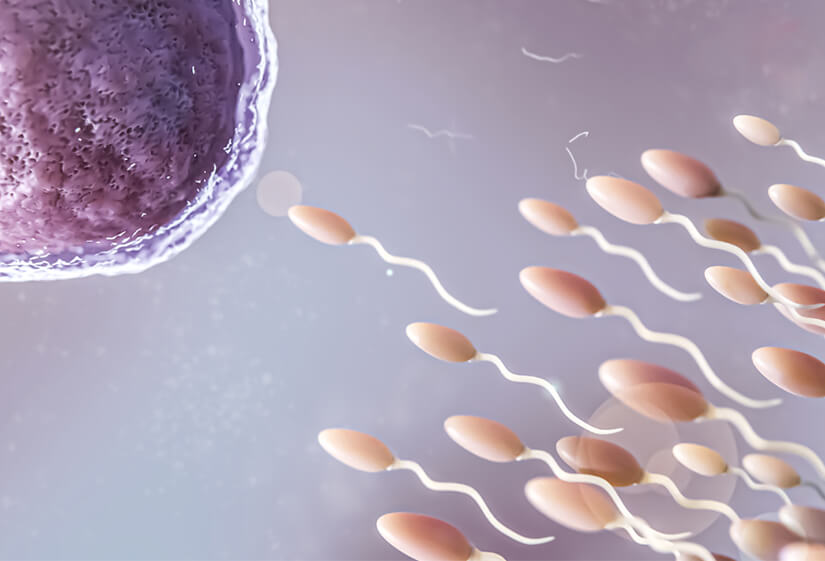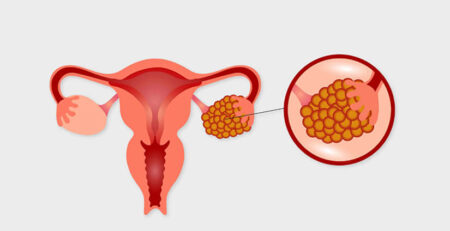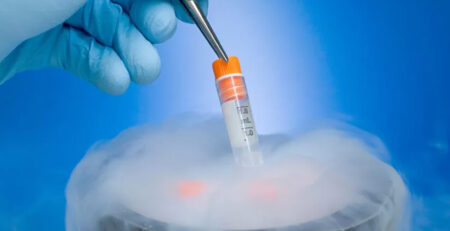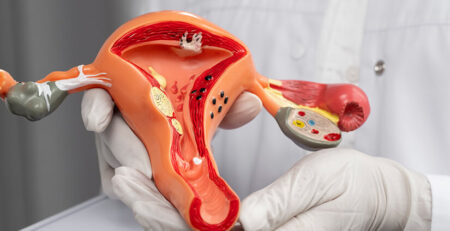IVF Treatment in Delhi – All That You Need to Know
IVF, or in vitro fertilization, is an ART (artificial reproductive technology) that helps many couples conceive a child when natural conception is not possible. While the procedure is gaining popularity, and more individuals are opting for it to realize their family aspirations, many doubts revolve around this technique.
This blog attempts to provide a comprehensive description of the IVF treatment in Delhi, and to answer many questions that people may have before they can make an informed decision in favour of IVF.
What is IVF Treatment?
In vitro fertilization (IVF) is one of the most advanced and effective forms of assisted reproductive technology (ART) offered to couples struggling with infertility. It is a process in which an egg (female gamete) and sperm (male gamete) are joined outside of the body, hence the term “in vitro,” which translates from Latin as “in glass” and means outside.
IVF treatment begins with development of many eggs in a woman through hormonal injections followed by meticulous collection of eggs (female gametes) from a woman’s ovaries. They are then allowed to combine with sperms (from man’s ejaculated semen sample) in a laboratory environment, typically in a petri dish. This is where fertilization can occur resulting in creation of embryos. The embryos are then observed for growth in an incubator. Following which good quality embryos are selected and transferred into the woman’s uterus hoping for attachment and pregnancy.
Each step is done meticulously in order to get best quality embryos which have maximum chances of implanting into the uterine lining and maturing into a healthy baby.
The path to IVF is often pursued by couples who, for various reasons, are unable to achieve conception naturally.
These reasons may include:
- Problems with sperm quantity or quality
- Fallopian tube obstruction
- Endometriosis
- Advanced maternal age
- Unknown cause of infertility
- Other simpler treatments have failed
- Sperms obtained from testis
- We must understand that IVF treatment is not a one-size-fits-all solution. Every individual’s medical, social, and physical condition is different; thus, the IVF approach to make the best embryos may differ in every case. This is where the expertise of IVF specialists in Delhi comes into play. They use their knowledge and experience to guide couples through the entire process, beginning with the initial consultation and ending with post-treatment care.

Is IVF the right choice for you?
If you are struggling to conceive and trying to understand if IVF treatment can be a good solution to your problem. But before you proceed consider the following factors.
- Fertility Diagnosis: IVF is a good option for patients with blocked fallopian tubes, endometriosis, male infertility, or any other unexplained causes of infertility. If you are diagnosed with any of these as the reason for not conceiving, you must choose IVF.
- Previous Treatment Results: If you’ve already undergone other fertility treatments and did not find any results, IVF treatment might be the right choice for you. IVF is often more successful for many couples who haven’t achieved pregnancy through other methods like Intrauterine Insemination.
- Age: If you are above the age of 35, your egg quality may have deteriorated. This again makes IVF a workable choice for you to help you conceive when simpler treatments are not working.
- Lifestyle Factors: If you are a patient whose fertility is impacted due to lifestyle choices like busy schedules, long working hours, night shifts, travelling, not being able to stay with partner, missing on the fertile window, IVF can help in delivering better pregnancy outcomes as compared to simple methods in shorter time
- Emotional Readiness: IVF treatment can be an emotionally testing journey. You must make sure that you are emotionally stable to go through IVF and make the right decisions throughout.
- Financial Considerations: IVF is a highly sophisticated and medically advanced treatment. Hence it is costly. Financial stability is another factor you need to consider before making a choice about IVF.
- Personal Values and Beliefs: During an IVF cycle, you must understand it may be an assisted method of conception happening in lab but the egg and sperm used are not artificially made or procured from banks without consent. You must clarify any such doubts and other myths before starting the treatment to ensure trust building and positivity during this process.
- Realistic Expectations: It is important to have very real expectations from IVF treatment. It is just like any other medical treatment, with associated success and failure aspects. It may not be a success every time.
- Consider a Thorough Consultation: Schedule a consultation with an IVF specialist who can provide tailored guidance based on your medical history, needs, and concerns. Ask questions, clarify doubts, and ensure you have a clear understanding of the entire process.
Once you have considered all the above-mentioned factors, it is important that you know that deciding about IVF is going to be a very personal decision for you. But the results of IVF treatment are affected by the age, so sooner you decide to go for IVF better are the chances of conception. Meet the best IVF doctor in delhi to discuss all your apprehensions, doubts, pros, cons and make an informed decision.

What are the Benefits of IVF Treatment
The benefits of IVF treatment over the natural conception pathway is a boon for couples suffering from infertility.
- Dependency on one egg naturally produced is overcome by numerous eggs formed through hormonal injections, hereby increasing chances of better and more no. of embryo formation for growth and selection
- Bypasses the Fallopian tubes: In natural conception egg is picked up by tubes, meets with sperm in the tube and then the formed embryo rolls down to the uterus, this is all done in lab in IVF procedure, making it ideal for blocked tubes woman
- Shortening the passage of motile sperms to the eggs: Washed semen sample containing numerous sperms are kept with one egg in a dish.
- Selection of sperm: When the semen sample has low count, motility or abnormal sperms, one single sperm is chosen and injected in an egg through ICSI treatment (Intracytoplasmic Sperm Injection)
- Aids fusion of egg with sperm: ICSI helps in overcoming the barrier of fusion between egg and sperm resulting in embryo formation more so in male factor and unexplained infertility cases.
- Treats Hormonal Problems: ovulation irregularities, premenstrual bleeding, endometriosis
- Increased Pregnancy Chances: IVF treatment increases pregnancy chances by allowing fertilization to occur in a controlled and monitored environment. Embryo selection based on grading is the key step determining IVF success. When each stage is being watched closely, the chances of failure are considerably reduced.
- Preventing Genetic Disorders: During IVF treatment, pre-implantation genetic testing (PGT) can be done, which allows for the detection of genetic problems in embryos before they are transplanted. Thus, the foetus is prevented from getting any genetic disorders.
- Controlled Timing: IVF gives you the option to conceive in your desired timeframe. This is very useful for couples who have busy professional schedules and want to schedule childbirth time as per preference.
- Single Parenthood : IVF treatment can help to conceive biological children. This is achieved through donated sperm (male gamete) or eggs (female gamete) or surrogacy (Uterus or womb) if necessary.
- Fertility Preservation: Through IVF, women can also freeze their eggs and preserve them for future use. For example, a woman going through medical issues like cancer treatment or social reasons, who wants to conceive later, can save the eggs and conceive through IVF.
- Surrogacy Possibilities: If a woman is not able to carry a pregnancy due to physical issues, a surrogate mother can carry the foetus formed through IVF (outside the body) and help the woman to become a mother.
- Medical and Individualized Care: IVF treatment is carried out by a skilled, trained and experienced team of medical professionals. The patients get personalized care and support during all stages of the treatment.
While IVF treatment has proven to be an effective solution for many couples, it’s crucial to consult with the best IVF doctor in Delhi, to determine if it’s the right choice for your particular case. Every individual’s medical, social, and physical condition is different; thus, the IVF approach and outcome may differ in every case. Also the IVF success rate depends on a woman’s age, health and embryo quality. Discussion with IVF expert as to how IVF will benefit your case will be really helpful.
How does in vitro fertilization work?

Let’s go through the IVF treatment procedure step by step, so you know what to expect at each stage:
1- What to Expect When Preparing for IVF
You’ll have a thorough consultation with a fertility doctor before beginning IVF. They’ll go over your medical history, past history of fertility treatments taken, run any required blood tests, do an ultrasound and develop a customized treatment plan for you. Details such as the type of IVF, injections and the overall timeline will be discussed. You may be advised to take some supplements.
2- IVF Medications and Hormonal Stimulation
IVF treatment involves stimulating your ovaries to generate numerous eggs. Hormone injections are usually administered on a daily basis for around 10- 12 days. Your doctor will instruct you on how to use and store them. During this time periodic follicle monitoring ultrasound and blood tests shall be done to see the progress of follicle( egg containing cyst like structures in the ovaries) development. Once the final size is achieved the trigger injection is administered and the date and time of egg retrieval is determined accordingly.
3- Egg Retrieval Procedure: What to Expect on the Day, Preparation, and Post Procedure
a- Preparation:
Your fertility doctor will advise you to come fasting at least 6 hrs before the procedure, not wear any cosmetics, jewellery, fragrance. Carry your medical records and reach on time.
b- The time of egg retrieval is fixed according to the time of trigger for best egg yield and is not modifiable
c- On the Day of Egg Collection: What You Can Expect:
You shall meet the nurse and after changing into hospital clothes will be taken into IVF OT
Anaesthesia Management: The procedure is performed under anesthesia, which is usually short General Anaesthesia. A competent anaesthetist will administer it and you will be unconscious during the procedure and experience no pain.
During the Procedure: After giving anesthesia, your IVF doctor will insert a small needle attached to the vaginal ultrasound probe. The doctor visualizes your follicles (the fluid-filled sacs containing eggs) through the ultrasound monitor. Once the follicles are visible, the doctor will puncture each follicle and suck the fluid from the follicles into a tube. This fluid contains eggs. The tube is then taken to the embryology lab, where the Embryologist scans the tube, takes the eggs from the fluids, and places them in a dish. These eggs will be combined with the husband’s sperm sample later on to achieve fertilization.

Post Procedure
The entire procedure typically takes about 10 to 15 minutes, depending on the number of follicles. After the egg retrieval procedure is completed, you will be transferred to the recovery area, where you will stay for approximately an hour or two. You will be given some pain killer for post procedure cramps if required. In some cases, you might also feel some temporary nausea, which typically subsides within a few hours.
When you are completely awake and relatively pain-free after around an hour, your doctor will give some instructions and prescribe medicines, tell you the number of retrieved eggs and you will be discharged home.
4- Sperm Collection and Semen Analysis
On the same day as the egg retrieval, a semen sample is collected from the male partner or a sperm donor. The semen from partner is usually obtained by masturbation. However in few conditions electroejaculation, testicular sperm extraction (TESE) or epididymal sperm aspiration (PESA) methods can also be used. Donor semen if to be used is obtained from ART donor semen banks in frozen state.
Semen sample is then prepared by the process of washing and made ready for incubation with egg.
5- Fertilization Techniques: Traditional IVF Versus ICSI
 Fertilization can be achieved through the traditional IVF method or intracytoplasmic sperm injection (ICSI) method.
Fertilization can be achieved through the traditional IVF method or intracytoplasmic sperm injection (ICSI) method.
Traditional IVF: In the traditional IVF treatment, also known as the insemination procedure, the egg and washed sperm are placed together in a culture dish and incubated to encourage fertilization. The best one fuses with the egg and forms the embryo.
Traditional IVF is typically used when there are no significant issues with sperm number and motility. It enables natural selection and interaction between sperm and eggs, resembling what would happen in a woman’s fallopian tubes.
Intracytoplasmic Sperm Injection (ICSI): In the ICSI method, a single sperm is selected and put directly into an egg using a special tool under a powerful microscope by the embryologist. This is great for couples with issues like low sperm count, weak sperm movement, or previous IVF attempts that didn’t work. ICSI allows careful selection of a single sperm, making sure the egg is ready and mature, hereby increasing the chances of successful fertilization and getting pregnant.
Both ICSI and traditional IVF treatment have high success rates and have helped many couples and individuals achieve their dream of becoming parents. The decision between these techniques depends on factors such as underlying fertility issues, the quality of sperm and eggs, and the recommendations of the IVF doctor.
6- Embryo Development and Selection
 The embryos start developing in the laboratory after fertilization of the eggs, whether through traditional IVF treatment or ICSI. Not all embryos have the same potential for successful implantation and pregnancy. An embryo that shows ability will divide cells at the expected pace and proceed smoothly from Day 1 to Day 5. Embryos that grow slowly or fail to progress have less chance of successful implantation and subsequent pregnancy.
The embryos start developing in the laboratory after fertilization of the eggs, whether through traditional IVF treatment or ICSI. Not all embryos have the same potential for successful implantation and pregnancy. An embryo that shows ability will divide cells at the expected pace and proceed smoothly from Day 1 to Day 5. Embryos that grow slowly or fail to progress have less chance of successful implantation and subsequent pregnancy.
On average, around one in every three or four fertilized eggs will undergo transformation into the blastocyst stage by Day 5. You will be updated on a daily basis about embryo number and grade.
The embryologist assesses the appearance of embryos under a microscope to select 1-2 good embryos. He/She looks at criteria such as the number and symmetry of cells and grades the embryos. Preimplantation genetic testing (PGT) can also be performed to screen for genetic abnormalities or chromosomal disorders in embryos before transfer.
7- Embryo Transfer Process: What to expect on the day, preparation, post-procedure

Embryo transfer is the final step of the IVF procedure, which is performed 3-5 days after fertilization. One or more embryos are transferred into a woman’s uterus to achieve a successful pregnancy.
What to Expect On the Day: The procedure is quite simple. Your fertility doctor will talk to you about the embryos that have been developed, how good they are, and how many there are. They will explain what will happen during the procedure in an easy-to-understand way.
Preparation: On the day of the transfer, you might be asked to have a full bladder, which can help the doctor visualize the uterus better during the procedure. Unlike egg retrieval, you won’t need any special medication to make you sleep or numb the pain.
Procedure: Your doctor will gently place a tool called a speculum into the vagina to have a look. Then, they will use a thin, long tube that holds the embryos to put them into the womb. This tube will go through the opening in the cervix and into the uterus. There’s a little bit of liquid in the tube that helps the embryos move smoothly. The whole process takes around 15 to 30 minutes.
Post-Procedure: After the transfer, you will be advised to relax for a little while before returning home. Sometimes, only 30 minutes is enough, but the clinic will make sure you are comfortable. You don’t have to stay in bed, but your doctor may suggest avoiding hot tubs, jacuzzis, hot baths, strenuous activities and having sex until after your pregnancy test.
Post Embryo Transfer Care: Do’s & Dont’s
After undergoing an embryo transfer, taking proper care is essential to increase the chances of successful implantation and pregnancy.
Post Embryo Transfer Do’s
- Pamper Yourself: While you do not need to be bedridden, relaxing and avoiding intense activity during the first few days following the transfer is advisable. To be calm and relaxed, you should get at least 8 hours of sleep at night and two hours of rest during the day.
- Take a Healthy Diet: Consume a nutritious, well-balanced diet. Avoid processed foods, limit sugar intake, choose healthy carbs, include fatty fish in your diet twice a week, prioritize protein consumption, and take a daily multivitamin pill containing folic acid.
- Stay Hydrated: Stay hydrated by drinking plenty of water. Drink at least 3-4 litres of water daily and other fluids such as juices, coconut water, and milk.
- Keep Taking Medications: Follow your fertility doctor’s instructions carefully. If your doctor has prescribed any medications such as progesterone, estrogen, or other medications, make sure to take them as directed.
- Manage Stress: Prioritize self-care to manage stress and anxiety. While some stress is normal, persistent anxiety can harm hormones, blood flow, and sleep. This impacts both body and brain function. Instead of fixating on anxiety, take steps to manage it. Try meditation, nature walks, or enjoying your hobby to redirect your body’s focus. This aids embryo implantation by reducing chronic stress’s hormonal and resource drain.
Post Embryo Transfer Don’ts
- Avoid Strenuous Activities: Avoid vigorous activities like aerobics, running, jogging, cycling on slopes, and so on. Instead, you may participate in modest exercises such as walking. You may also go to work, but only if your job does not require heavy lifting or strenuous activity.
- Avoid Sexual Intercourse: To increase the chances of a successful pregnancy, it is recommended that you avoid having sex for ten days after the embryo transfer. Sex may cause uterine contractions, interfering with embryo implantation in the uterine lining.
- Avoid Taking Pregnancy Tests Immediately: Avoid conducting home pregnancy tests due to the possibility of inaccurate results. Wait approximately two weeks after the transfer for your initial hCG test. Your fertility doctor will schedule your official pregnancy tests.
- Avoid Smoking and Alcohol Consumption: Limiting cigarette smoking and alcohol consumption is crucial, as they have been linked to decreased fertilization rates, lower pregnancy success rates, and higher chances of miscarriages or ectopic pregnancies.
- Avoid Infections: It is best to avoid crowded places, eating from outside, swimming in pools to prevent potential infections.
Pregnancy Test
At least eleven days after the embryo transfer, a pregnancy test is performed to determine whether the IVF procedure was successful in achieving pregnancy. It can be done by urine strip but getting a blood test of beta hCG is more reliable. But doing it too early can give inaccurate results. As the pregnancy progresses, the hCG levels should rise significantly and ultrasound is usually scheduled during the fourth-week post-embryo transfer. This ultrasound will confirm your pregnancy by determining the gestational sac and the baby’s heartbeat.
IVF Success Rate and Factors Influencing Success
The success rate of IVF can vary depending on several factors, including the woman’s age, the specific factors causing infertility, lab conditions, skill of the embryologist.
Age: As the age advances chances of IVF success declines
- Women under 35: IVF success rates ranging from 40% to 50% or even higher
- Women aged 35 to 37: IVF success rates around 30% to 40% per IVF cycle.
- Women aged 38 to 40: IVF success rates continue to decrease as women age, and the success rates are typically around 20% to 30% per IVF cycle.
- Women over 40: IVF for women over 40 years has significantly lower success rates of around 10% to 20%
Factor Causing Infertility:
- Ovarian reserve: Women with a reduced ovarian reserve (lower number of eggs or lower quality eggs indicated by low AMH) have poorer outcomes with IVF.
- Male factor infertility: low sperm count or poor sperm motility or higher DNA damage and sperm from testicles can affect IVF success rates.
- Tubal factor infertility: IVF has good outcome in blocked tubes but untreated water collection in tubes (hydrosalpinx) can cause reduction in pregnancy chances to half.
- Uterine abnormalities: Large fibroids, adenomyosis, polyps, uterine malformations negatively affect the IVF success rate
- Previous pregnancy history: Women who have had successful pregnancies before have better IVF success rates compared to those who haven’t.
Previous Pregnancy: Your past pregnancies or miscarriages might also influence your chances of success with IVF. Having previously conceived with your partner enhances the chances of a successful pregnancy, whereas experiencing recurrent miscarriages can potentially lower your IVF success rate.
Egg and Embryo Quality: The quality of eggs and embryos is closely connected to age, ovarian reserve, stimulation method, and sperm health. The higher the eggs and embryo quality, the more likely IVF treatment will be effective.
Sperm Quality: In some cases, sperm quality can also affect the IVF success rate. The poor quality sperms or non-motile sperms impact embryo development.
Lifestyle Factors: Smoking has a significant effect on IVF success rates. People who smoke often have poor egg and sperm quality and hence poor embryo grading. Another important lifestyle factor is weight; being overweight increases the chance of infertility and miscarriage. Underweight women, on the other hand, may have difficulty conceiving. Therefore, avoiding smoking and managing weight is essential to improve the chances of successful IVF treatment.
Medical History: In addition to undertaking a full fertility screening, you and your physician will discuss your medical history, which is an important step in developing an optimized treatment approach. Giving a thorough summary of your medical past and drug history is critical to increasing your chances of success.
IVF Cycle Calendar and Visits to the Clinic
| Day | Activity |
| Day 1 | Bleeding of Your Menstrual Period |
| Day 2 or 3 | Ultrasound and Blood Test |
| Day 5 or 6 | Clinic Visit to Monitor Follicle Growth in Ovaries |
| Day 8 or 10 | Ultrasound to Assess Follicle Growth Interval |
| Day 12 or 13 | Administer Trigger Shot to Mature Eggs When Follicles are Ready. |
| After 35- 36 hours of Trigger Shot | Egg Retrieval |
| On the day of Egg Retrieval | Collecting and Preparing Semen Sample |
| 5-6 Days After Egg Retrieval | Embryo Transfer |
| 2 Weeks After the Embryo Implant | Pregnancy Test to Determine the Success of IVF |
An IVF calendar is quite useful in understanding the process of IVF and planning the visits, leaves from work, duration of stay for outstationed couples.
The particular time frames of most IVF cycles vary owing to individual patient reactions to drugs and menstrual cycle patterns.
Day 1: The first day of bleeding of your menstrual period is considered the first day of the cycle. You will notify the clinic and schedule an appointment.
Day 2 or 3: On the second or third day, you will visit the clinic for an ultrasound and blood test. The ultrasound will determine whether there are any remnant cysts from the last cycle and the uterine lining has been shed. Levels of your hormones will be determined through blood tests. If all the reports are normal, your IVF injections will be started.
Day 5 or 6: In this visit the doctor will scan you for the growth of follicles in the ovary. Based on which some other injection may be added or the injections changed.
Day 8 or 10: Another ultrasound is performed to see the interval growth.
Day 12 or 13: An injection that causes maturity of the eggs is given named the trigger shot when the follicles are ready.
After 35- 36 hours of Trigger Shot: The egg retrieval procedure takes place about 35- 36 hours after the trigger shot. This procedure will be done under anaesthesia in a day care setting and you will be discharged the same day. The eggs are extracted using an ultrasound-guided needle.
On the day of Egg Retrieval: A semen sample will be collected from your partner and prepared for fertilization. The eggs will be fertilized in the lab using your partner’s sperm.
5-6 Days After Egg Retrieval: You will undergo an embryo transfer, in which one or more embryos will be implanted in your uterus lining.
2 Weeks After Embryo Implant: After 2 weeks of embryo implantation, you will take a pregnancy test
The overall number of clinic appointments will vary based on your specific needs. Most people, however, will need to visit the clinic 5 times during the IVF cycle. Talk to your doctor about your treatment plan so you know what to anticipate.
There are a few things to keep in mind while visiting the clinic during the IVF cycle, including:
- The exact planning of the appointments will depend on your treatment plan.
- After your egg retrieval process, you may have some side effects of the anaesthesia drugs
- You may experience some side effects from the fertility medications, such as bloating, nausea, and fatigue.
- Follow your doctor’s instructions carefully after the embryo transfer procedure for a successful pregnancy.
Managing IVF Stress and Emotional Well-being
IVF is a complicated process which can be a stressful and emotionally draining experience. Therefore, managing stress and emotional well-being during this time is essential. Here are a few tips for managing IVF related stress:
- Educate Yourself: Knowledge is power. Therefore, gathering all the information before starting the procedure is essential. Have a clear understanding of the treatment approach, the timeline, potential challenges that might arise and the chances of a favourable outcome. It will help to make informed decisions and strategic planning. Communicate with your doctor about your concerns and uncertainties. Seeking advice from couples who have already gone through IVF or participating in infertility support groups can also help to alleviate your fears and anxiety.
- Get Prepared for Decision-Making: To make an informed decision, discuss with your doctor how many embryos will be transferred to maximize your chances of pregnancy while minimizing the potential of twins or triplets pregnancies. You must also determine what you will do with surplus embryos, like freezing, disposing, or donating them.
- Prioritize Self-Care: Daily life normally continues during your IVF cycle, and managing IVF requirements with current anxieties can be difficult. While studies shows that stress does not influence IVF success, your overall health remains a compelling reason to prioritize self-care. Giving time for self-compassion becomes especially important before, during, and after the IVF journey.
- Seek Support: Share your decision with your closest friends and family, and consider their suggestions. Rather than bearing the weight of such a major decision alone, opening out to those close to you and expressing the problems and barriers you face can significantly improve your capacity to handle stress. If the need arises, consulting with a therapist or counsellor might be beneficial.
- Get Relaxed: There are several methods for dealing with stress, including yoga, meditation, light exercise, a nutritious diet, engaging in talk therapy and exploring acupuncture.
- Stay Positive: Cultivating a positive mentality may improve your well-being and interpersonal relationships. This does not involve pretending to be happy during difficult circumstances but promoting a regular tendency towards confidence which can help manage stress and boost your immune system while prolonging your lifetime.
- Set Realistic Expectations: It is essential to note that IVF does not guarantee pregnancy. It is critical to have reasonable expectations and not become disheartened if you do not become pregnant immediately.
- Seek Professional Help: Consider obtaining professional support from a therapist or counsellor if you are trying to cope with the emotional burden of IVF treatment. During this tough time, they may provide you with support and assistance.
Potential IVF Risks and Complications
Although IVF is a safe and successful treatment for infertility, it could have certain risks and problems in some patients. Some of the most common problems of IVF include:
Ovarian Hyperstimulation Syndrome (OHSS): OHSS develops when the ovaries generate an abnormally large number of eggs in response to fertility medicines used in IVF. Bloating, nausea, vomiting, and weight gain are all signs of OHSS. In severe cases, OHSS may require hospitalization.
Multiple Pregnancies: There is a likelihood of conceiving twins or triplets with IVF treatment. If more than one embryo is placed inside the uterus. It can also increase the risk for both mother and baby. Premature birth, low birth weight, and health issues can all be concerns of multiple pregnancies for both the mother and the child.
Miscarriage: The risk of miscarriage is similar for IVF pregnancies as it is for natural pregnancies. However, the risk of miscarriage may be slightly higher for women with multiple IVF cycles.
Infections: Infections are rare post IVF, it can occur during needle insertion during egg aspiration because, during this time, bacteria can enter the ovary or uterus. There are several approaches to addressing this issue. For example, giving prophylactic antibiotics to either you or your spouse during the egg harvesting process protects against such illnesses.
Ectopic Pregnancy: An ectopic pregnancy occurs when the embryo develops outside the uterus, often taking place in the fallopian tubes. This is typically a result of abnormalities or inflammation in the fallopian tube. If you encounter this situation, consult your doctor to avoid potentially life-threatening complications.
IVF Cost and Financing Options
IVF is a complicated and step-wise procedure. IVF cost in Delhi vary depending on several factors, including the fertility clinic, the medications used, and the number of cycles required. Following steps are a part of the IVF process and the cost of each is included in IVF cost.
Fertility Medications: The hormonal injections given to stimulate the ovaries to produce multiple eggs are the basis for egg quality and hence pregnancy outcome in IVF. They are expensive and form a major part of the cost of an IVF package.
Consultation and Ultrasounds: Several consultations, ultrasounds and other blood hormonal tests are performed to check the progression of pregnancy.
Egg Retrieval Procedure: An egg retrieval procedure is performed under anesthesia, where a small needle is inserted under ultrasound guidance. Thus the cost of the procedure and anesthesia is considered.
Embryo Culture: On the same day of the egg retrieval, the semen sample is collected and prepared. The sperm is fused with the egg, and embryos are formed. They are then grown in the lab called embryo embryo culture. All this is included in IVF cost in Delhi.
Following procedures are used for special conditions in an IVF cycle and are charged separately.
Specific Technique: In some cases, particular techniques like ICSI, specific sperm selection technique, embryo selection technique and biopsy.
Freezing of Surplus Eggs and Embryos: In some cases, the extra eggs and embryos are frozen for further IVF cycles. The cost of the freezing processes and equipment used is also added.
Number of IVF Cycles Required: The number of IVF cycles needed to achieve a successful pregnancy can also affect the cost. Some couples only need one cycle, while others need multiple cycles. The price of each cycle will add up, and the overall cost of IVF may be higher for couples who require numerous cycles.
Medical History: Couples suffering from medical issues such as fibroids, adenomyosis, hydrosalpinx, polyps may require additional surgical procedures apart from IVF treatment.
IVF treatment cost in Delhi varies from ₹ 1,25,000 to ₹ 2,50,000 depending upon the expertise of the doctor, lab equipments, clinic location etc. There are several financing options available to help you pay for IVF treatment. Some insurance companies provide insurance plans for IVF, and some clinics offer loans for the procedure.

IVF and Alternative Fertility Treatments
IVF, or Invitro fertilization, is employed as treatment of choice for following conditions irrespective of the age and duration of the marriage:
- Woman with blocked tubes
- Extremely low sperm count or motility
- Use of donor egg for woman with menopause
While for some it may be advised after other methods have failed or the time to pregnancy period is longer with them
- Unexplained infertility
- Advanced age
- Poor Egg reserve
- Endometriosis
- Polycystic Ovarian Disease
- Mild male factor infertility
These are the conditions where if a couple wants to continue with simpler methods like timed intercourse or intrauterine insemination, they should be counselled and helped to make an informed choice
- Pregnancy chances in IUI treatment are around 18-20 percent
- Natural pregnancy chances are around 15 percent
- People not conceiving with simple methods have lower chances of conception than natural conception (<10%)
- There are practically no means to test for infertility reasons related to egg sperm fusion and assessment of quality of egg and embryo formed
- IVF treatment has a success rate of around 50 -60 percent because of an advantage to overcome fusion barrier and selection of sperm, egg and embryo selection
IVF is one of the most successful available and sometimes the only treatment option for couples struggling with infertility.
IVF Success Stories and Patient Testimonials
Success stories and patient testimonials from IVF patients can support people considering or through reproductive treatments.
Reading or hearing about real-life success stories might give those with fertility issues hope. Knowing that others have faced similar challenges and achieved their goal of parenthood can bring much-needed encouragement.
Fertility treatments may be emotionally draining. Patient testimonials may increase understanding, helping people know they are not alone in their difficulties. It’s reassuring to be able to connect to individuals who have gone through similar feelings and hardships.
Success stories might shed light on IVF treatment and its difficulties. They can assist patients in better understanding what to expect at various phases, from initial consultations through treatment measures.
You can get advice, tips, and strategies that worked for them during their fertility journey. These insights can help you make informed decisions and navigate the treatment process more effectively.
Success stories often include details about how individuals coped with fertility treatments’ emotional ups and downs. This can provide valuable strategies for managing stress, anxiety, and disappointment.
Here are the testimonials of our patients:
- A patient who had been married for 14 years had early abortions and finally became pregnant with her first IVF attempt.
- A 39-year-old woman with three miscarriages was discovered to have significant female factor infertility conceived in the first IVF treatment utilizing P IVF for sperm selection.
- After 9 years of natural attempts, a woman conceived through IVF therapy.
- A 52-year-old woman who had lost her only son and had conceived with IVF had a lovely baby daughter.
Choosing the Right IVF Clinic: Factors to Consider
IVF is a life-changing procedure. Therefore choosing the right clinic is essential for a successful pregnancy. Here are a few factors that you need to consider while selecting the clinic for the procedure:
Experience of the Doctor: The doctor’s experience is an important factor to consider when choosing an IVF clinic. Do your own research, read online reviews or patient testimonials, and check the credentials of the doctor before making an appointment.
Success Rate: IVF success rate is another factor to consider before choosing an IVF center. A wise step in the decision-making process is to get the center’s success rate statistics and compare them to the national average.
Location of the Clinic: IVF is a complex procedure that requires multiple appointments. Therefore the clinic should be located in a convenient location for you. This will make it easier for you to attend appointments and get your needed care.
Cost: The cost of IVF treatment can be high, depending on the clinic and the precise treatment plan required. Getting lured by a low cost IVF centre without assessing other factors could be detrimental for the outcome of the procedure. Therefore consider the cost element and ensure that the clinic gives full clarity on prices and potential additional expenditures.
Treatment Options: IVF clinics can provide a wide range of treatment options and services, such as ICSI, IUI, preimplantation genetic testing and embryo freezing. Choose a clinic that meets your individual treatment needs and provides the resources you desire.
Personalized Care: IVF treatment is a complicated and stressful procedure; therefore, it is essential to choose an IVF clinic that offers personalized care tailored to your unique needs and desires. It is critical to choose a hospital that provides patient-centred treatment.
Communication: The clinic should maintain open lines of contact with their patients. This includes responding to your inquiries and concerns.

IVF in India: What ART law says?
Assisted Reproductive Technology (ART) involves infertility treatment by fertilizing the sperm and egg either outside the body. This involves retrieving a woman’s eggs from her body and uniting them with sperm to generate embryos. The procedure of introducing an embryo into the female reproductive system is referred to as an assisted reproductive technique, and its most common form is in vitro fertilization (IVF).

ART Laws
Recently, India has emerged as a prominent global hub for fertility treatments due to its favourable combination of high success rates and affordable costs. In this context, the Assisted Reproductive Technology (ART) Bill of 2020 was introduced in December 2021, to limit the commercial elements of ART services.
- The law strongly focuses on the appropriate and authorized use of ART treatments, including techniques such as IUI, IVF, ICSI, and gamete donation by accredited centres only.
- Central to the law is the mandate for ART clinics and banks to undergo registration with the National Registry of Banks and Clinics in India.
- All ART services are available for married couples or women where: (i) the woman is between 21 and 50 years of age, and (ii) the man is between 21 and 55 years.
- Sperm and egg donors can be taken through registered ART banks only.
- A bank can take semen from males between 21 and 55 years of age, and eggs from females between 23 and 35 years of age. The woman may donate eggs only once in her life. For women donors, being married and having at least one living biological child are eligible for oocyte donation.
Wrapping Up!
In assisted reproductive technology, IVF treatment has proven to be a game changer for couples struggling with infertility. Its success rates and advances in medical technology have given individuals wishing to be parents great hope. Countless families have experienced the joy of parenting thanks to IVF, making it a beacon of hope for those navigating fertility challenges.
Dr. Gupta is recognized as a guiding light for individuals seeking IVF treatments because of her vast expertise, caring attitude, and persistent devotion to her patients. Her knowledge goes beyond medical treatments, as she gives vital emotional support to her patients, making them feel cared for at every stage of their journey.
If you or someone you know is facing infertility challenges and seeking a path to parenthood, there is no better time to take action. Contact Dr. Rhythm Gupta, director of Excel IVF- the best IVF centre in Delhi a renowned IVF expert who combines medical excellence with genuine empathy. With her guidance, you can explore IVF’s possibilities and embark on a journey toward fulfilling your dreams of starting or expanding your family.












